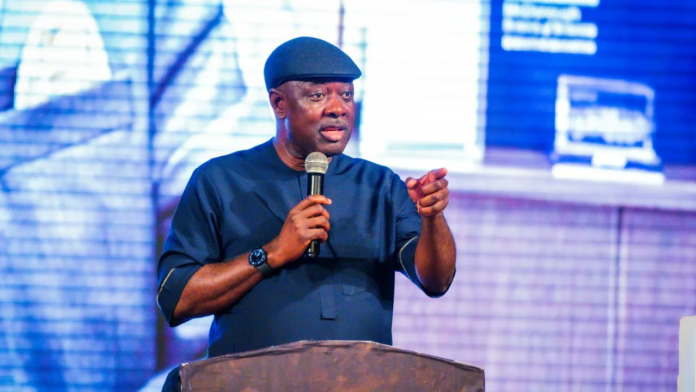The Minister of State Petroleum Resources (Oil), Heineken Lokpobiri, has said the price of crude oil in the international market remains a major force in driving the fluctuations in the pump prices of petrol.
He said the downstream sector is now fully deregulated with the government no longer involved in setting prices.
The minister said these at the inaugural meeting of the Petroleum Industry Stakeholders Forum, held on Thursday in Abuja.
The Minister of State Petroleum Resources (Oil), Heineken Lokpobiri, has said the price of crude oil in the international market remains a major force in driving the fluctuations in the pump prices of petrol.
He said the downstream sector is now fully deregulated with the government no longer involved in setting prices.
The minister said these at the inaugural meeting of the Petroleum Industry Stakeholders Forum, held on Thursday in Abuja.
The PUNCH reports that there have been fresh concerns over a potential increase in the pump prices of petrol after the cost of Brent, the global benchmark for crude, crossed $80 per barrel.
On Monday, private depots increased the loading cost of petrol and other refined petroleum products to ₦950 per litre.
However, marketers at the meeting allayed fears over the imminent rise in the price of petrol, noting it won’t be immediate.
Lokpobiri, speaking to journalists after the meeting, pointed out that deregulation ended all malfeasance associated with the petrol subsidy policy.
According to him, the government is now more interested in quality control as petrol prices are not controlled or predicted by an individual but by market forces.
He said, “The whole essence of deregulation is for price to find its level. Before now you will agree with me that every day you are hearing negative news about petrol subsidies. Today, you journalists have no negative news about petrol subsidies because it is completely regulated, and the price will find its level.
“As oil price goes up, petrol price will go up, and as oil price comes down, the price will come up. During the Christmas season, I was in Bayelsa, and I tried to go around different filling stations. Some filling stations were selling N1,020, others were selling N999, while others were selling N1,015.
“What we are concerned about, and I’ve always had that discussion with you, with the Authority Chief Executive of the Nigerian Midstream and Downstream Petroleum Regulatory Authority, is that the government is more interested in quality control. The government is more interested in availability, and what the government is particularly interested in is the dispensation of the right quantity.
“If you are buying 10 litres of PMS, let it be that you are not short-changed by the retail filling station. That is where we have issues. And once there is competition, people have a choice, and that’s why you don’t see any queues.”



